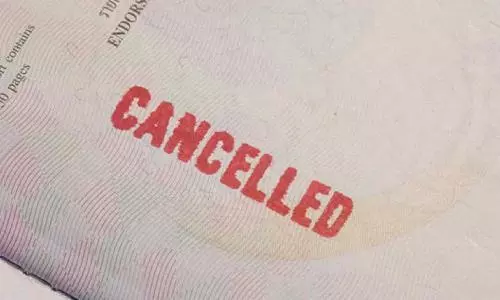
The right to life
text_fieldsAmong the Muslim countries of the world, Pakistan has the strictest laws awarding a death penalty for severe crimes.
Even though most of the countries with their own legal systems and religious backgrounds have abolished death penalty, some of them still practice the law for crimes like murder, drugs trafficking, rape and terrorism. Due to the pressure from the liberal and civilized countries and the human rights organizations, the country had withdrawn the law. But it lifted its moratorium on the death penalty and restarted executions for terrorism offences after the Taliban attack of an army-run school in Peshawar last December. The brutal massacre of around 150 people, most of them children and a few teachers had sparked international outrage. Now the international community as well as the UN has expressed concern over the increasing number of executions in Pakistan. According to human rights groups, the country which already has a weak judicial system has the world's largest number of death row inmates, with more than 8,000 people awaiting execution. Around 48 people convicted in the Peshawar attack case were hanged to death so far.
The recent instance is that of a 24-year old Shafqat Hussain who was awarded a death sentence for abducting and murdering a 7-year old in 2004. Pakistan President Mamnoon Hussain on Wednesday indefinitely stayed the execution after the incident invited global attention and sparked outrage from the human rights campaigners who said that it was a flawed trial. Hussain’s lawyers said that he was 14 when found guilty of the murder and that the confession was extracted by torture from the police. The family members filed a complaint with the human rights groups who then intervened in the matter. If found guilty, Hussain would be hanged to death. There has been an increase in the number of criminals as well as the crimes they commit. If the death sentence given for heinous crimes like murder and rape are withdrawn, it would be equal to risking the safety security and peace of the country which is the reason why the governments are hesitant on withdrawing the law. A death penalty awarded for severe crimes which is cited as ‘rarest of the rare’ incidents is therefore justified. The demand to hang the convicted responsible for the murder of former Prime Minister Indira Gandhi and her son Rajiv Gandhi and the pressure to punish Afsal Guru, the person behind the Parliamentary attacks were instances of formidable civic outcries.
As stated by UN Secretary-General Ban Ki-moon, “the right to life is a fundamental human right and death penalty has no place in the 21st century”. Unbiased and sincere inquiries into the matter with the help of precise evidences against them would help trace the people responsible for the crimes and unprejudiced and fair trial by the Judiciary would award the criminals the deserving punishment. But most of the times the corrupt police officials who bend their knees before their seniors or for personal gains trap innocents and frame them in crimes based on mere suspicions. Fabricated evidences and unscrupulous lawyers complete the process by bringing in a death penalty. The anti-terrorist laws in the country provide loopholes and lots of opportunities for the lawmakers who are capable of incriminating innocents and establishing them as criminals particularly in cases of terrorism. The Malegaon, Mecca Masjid and Samjautha Express incidents are examples. However technically advanced the criminal enquiry system is, it all goes futile while going through the hands of the corrupt police officers. The demand of the human rights organisations like Amnesty International to ban the death sentence becomes relevant in this case.
The Judiciary in democratic India is far better than that in Pakistan. However in countries like Bangladesh and Egypt, the legal system acts like a puppet in the hands of the government. The voices raised against the autocratic rule are suppressed effectively by detaining the protestors or awarding them a death sentence after a brief and flawed trial in the courts. The nations who should be opposing such injustice prefer to keep silence as they too are not free of the blight. The UN should therefore intervene in the matter and adopt steps to tackle the issue.























